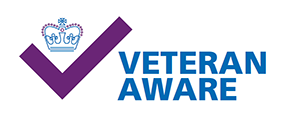Our Services A - Z - Dermatology Outpatients
About the service
Dermatology is a medical speciality that deals with the diagnosis , treatment and management of a range of chronic and acute skin conditions. We provide highly specialised quality care and services to both adults and paediatrics across 3 sites (St Helens Hospital, Whiston Hospital and Newton Community Hospital).
Some of the treatments and services we provide include General Dermatology Clinics, 2 week rule Skin Cancer Clinics, minor surgery for routine and urgent conditions , Phototherapy ,Photodynamic therapy, biologic therapies, vulval speciality clinic, HIV speciality clinic, urticarial specialist clinic, hair loss speciality clinic, Botox clinic for hyperhidrosis, Patch Testing ( for contact allergy), systemic drug monitoring clinics and cryotherapy.
- About the Team
Directorate Manager
Yvette Edwards
Assistant Directorate Manager
Guy Fagan
Consultant Dermatologists
Dr Evelyn Pang (current Clinical Director)
Dr Katherine MacBeth
Dr Maeve Walsh
Dr Sian Hickey
Dr Elaine Hindle
Dr Judith Ellison
Dr Kok Ngan
Dr Hanna-Bashara
Dr Pooja Trehan
Dr Nekma Meah
Dr Sophie Winters
Locum Consultants
Dr Theodoros Vernikos
Dr Juliano Crema
Dr Tess Hanley
Dr Omima Eruk
2 Specialist Registrars In Dermatology (6 month roatation)
GP with special interest in Dermatology
Dr Manisha Mangarai
Nursing Team
Lead Dermatology Nurse Specialist / Clinic Manager
Vicky Arslanian
Dermatology Nurse Specialists
Jane Searle
Andrea Jones
Gail Boardman
Victoria Thomas
Dawn Hayter
Victoria Gallagher
Dermatology Staff Nurse
Michelle Rigby
Keri Millington
Dermatology Support Practitioners
Chloe Henderson
Karen Abbott
Gill O'Neill
- Location
We are based at St Helens Hospital, and run clinics and treatments Mondays – Wednesdays 8am-8pm, and Thursdays – Fridays 8am-5pm
We also provide clinics/services at Whiston Hospital and Newton Community Hospital
- Contact Details
Dermatology Secretaries contact numbers:
01744 646613
01744 646610
01744 646614
01744 646609
01744 646688
01744 646447
Appointments line St Helens and Whiston Hospital
0151 430 1234
St Helens & Whiston Main Switchboard
0151-426-1600
St Helens Hospital Reception
01744 646385/ 01744 646275
Whiston Hospital Reception
0151-430-1038
Newton Community Hospital main switchboard
01925 222731
- Relevant Leaflets/Documents/Links
British Association of Dermatologists - www.bad.org.uk
Dermnet - www.dermnetnz.org
National Eczema Society - www.eczema.org
Psoriasis Association - www.psoriasis.org
Skin Camouflage Network - www.skincamouflagenetwork.org.uk
- Patient Information Leaflets
Title - Conventional photodynamic therapy
Description - Conventional photodynamic therapy is a modern, effective treatment for certain types of pre-cancerous skin lesions such as actinic keratosis and Bowens disease, as well as selected non-melanoma skin cancers such as basal cell carcinomas. The treatment involves applying a light sensitive cream to the lesion and 3 hours later, shining a red light onto this area. The light and cream together create a chemical reaction to target and destroy the abnormal cells only, leaving heathy skin unharmed.Title - Phototherapy Oral (systemic) PUVA
Description - PUVA is the name of a treatment for certain skin conditions and stands for the use of a Psoralen drug in combination with Ultra Violet A light. The drug must be combined with exposure to the light for treatment to be effective. The Psoralen tablets are usually taken two hours before exposure to the UVA light. The tablets should not be taken on an empty stomach but with a light meal or snack. The amount of tablets taken depends on your body weight. Psoralen makes the eyes sensitive to light for some hours. After taking tablets, suitable glasses, which protect the eyes from UVA light must be worn for 24 hours. These will be provided.Title - PUVA – Psoralen Drug in combination with Ultra Violet A Light (Treatment of skin conditions)
Description - Puva is the name of a treatment for certain skin conditions and stands for the use of a Psoralen drug in combination with Ultra Violet A light. The drug must be combined with exposure to the light for treatment to be effective. The Psoralen tablets are usually taken two hours before exposure to the UVA light. The tablets should not be taken on an empty stomach but with a light meal or snack. The amount of tablets taken depends on your body weight. Psoralen makes the eyes sensitive to light for some hours. After taking tablets, suitable glasses, which protect the eyes from UVA light must be worn for 24 hours. These will be provided.Title - Teledermatology Service
Description - Your local GP practice has referred you urgently to the Dermatology service at Mersey & West Lancashire Teaching Hospitals NHS Trust (MWL), in order to get a specialist opinion relating to your skin problem. You are being referred because of your symptoms in order to rule out skin cancer, and to ensure that you are assessed, investigated, and, if necessary, treated as quickly as possible. It is normal to worry when you are referred urgently. Most patients referred in this way are not found to have cancer. This information sheet is to explain how the service works and how you will be kept informed of the outcome.Title - What you need to know about your minor operation
Description - A minor operation is a small surgical procedure. Your doctor has arranged for you to have this so we can remove something from your skin or to find out why your skin looks or is behaving differently. Because it is only a small procedure, you do not have to be put to sleep and can go home the same day. You will be looked after by our lovely team of doctors and nurses and you can also bring a grown up with you.
Page last updated on 03rd February 2025






